
0
+
Google Reviews

0
+
4.4 (2178 Ratings)
The Hadoop Administrator certification course equips individuals with essential skills for managing and maintaining Hadoop clusters in enterprise environments. Key topics include installation, configuration, troubleshooting, high availability, and security, providing comprehensive knowledge to handle Hadoop deployments efficiently.


Curriculum Designed by Experts
Enrolling in a Hadoop Admin Course provides you with the in-demand skills needed for efficient cluster management, security configuration, and performance optimization. You will get proficient in the intricacies of Hadoop administration through practical training. Certify your expertise and enhance your career prospects today!
Completing a Hadoop Admin Course opens doors to rewarding career opportunities like Hadoop Administrator, System Architect, and Big Data Engineer. With expert-led certification training, you’ll gain the skills to manage data clusters and secure high-paying jobs in the fast-growing Big Data field.
With the rapid rise of cloud adoption, enrolling in a Hadoop Admin Course ensures you're equipped to handle Hadoop clusters on cloud platforms. Learn vital skills like cluster deployment, scaling, and security in cloud environments. Get certification training and advance your career in Big Data and cloud computing.
A Hadoop Admin Course focuses on mastering scalability and flexibility in managing Hadoop clusters. Learn to scale resources efficiently, optimize system performance, and handle dynamic workloads. With certification training, enhance your expertise and grow your career in Big Data management today!
Enrolling in a Hadoop Admin Course Training helps you master cost management by optimizing Hadoop clusters, minimizing resource wastage, and improving efficiency. The certification ensures expertise in handling big data, making you a valuable asset to any organization managing large-scale data systems.
Enrolling in a Hadoop Admin Course Training ensures you master security and compliance by learning to safeguard data, manage permissions, and meet regulatory standards. Certification equips you to implement robust security measures, making you a key player in managing secure Hadoop environments.
Radical Technologies is the leading IT certification institute in Pune , offering a wide range of globally recognized certifications across various domains. With expert trainers and comprehensive course materials, it ensures that students gain in-depth knowledge and hands-on experience to excel in their careers. The institute’s certification programs are tailored to meet industry standards, helping professionals enhance their skillsets and boost their career prospects. From cloud technologies to data science, Radical Technologies covers it all, empowering individuals to stay ahead in the ever-evolving tech landscape. Achieve your professional goals with certifications that matter.
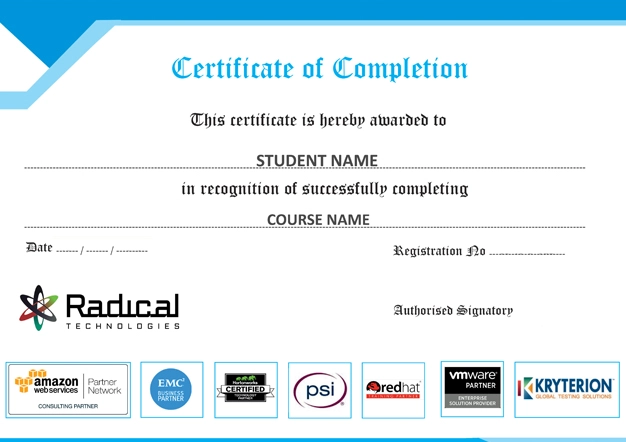


At Radical Technologies, we are committed to your success beyond the classroom. Our 100% Job Assistance program ensures that you are not only equipped with industry-relevant skills but also guided through the job placement process. With personalized resume building, interview preparation, and access to our extensive network of hiring partners, we help you take the next step confidently into your IT career. Join us and let your journey to a successful future begin with the right support.
At Radical Technologies, we ensure you’re ready to shine in any interview. Our comprehensive Interview Preparation program includes mock interviews, expert feedback, and tailored coaching sessions to build your confidence. Learn how to effectively communicate your skills, handle technical questions, and make a lasting impression on potential employers. With our guidance, you’ll walk into your interviews prepared and poised for success.
At Radical Technologies, we believe that a strong professional profile is key to standing out in the competitive IT industry. Our Profile Building services are designed to highlight your unique skills and experiences, crafting a resume and LinkedIn profile that resonate with employers. From tailored advice on showcasing your strengths to tips on optimizing your online presence, we provide the tools you need to make a lasting impression. Let us help you build a profile that opens doors to your dream career.

Infrastructure Provisioning
Implementing automated infrastructure provisioning and configuration management using Ansible. This may include setting up servers, networking devices, and other infrastructure components using playbooks and roles.

Applications Deployment
Automating the deployment and orchestration of applications across development, testing, and production environments. This could involve deploying web servers, databases. middleware, and other application components using Ansible

Continuous Integration
Integrating Ansible into CI/CD pipelines to automate software. build, test, and deployment processes. This may include automating the creation of build artifacts, running tests, and deploying applications to various environments.

I had an amazing experience with Radical Technologies's Hadoop Admin Course in Pune The trainers were highly knowledgeable and provided hands-on training that helped me grasp complex concepts easily
Radical Technologies's Hadoop Admin Course in Pune exceeded my expectations The course content was comprehensive, and the instructors were incredibly supportive throughout my learning journey
I highly recommend Radical Technologies's Hadoop Admin Course in Pune The certification provided a significant boost to my career prospects, and the job assistance offered by the institute was invaluable
Enrolling in Radical Technologies's Hadoop Admin Course in Pune was one of the best decisions I've made for my career The practical approach to learning and industry-relevant curriculum prepared me well for real-world challenges
The instructors at Radical Technologies's Hadoop Admin Course in Pune were exceptional Their expertise and guidance helped me gain a deep understanding of Hadoop administration concepts
I'm grateful for the opportunity to enroll in Radical Technologies's Hadoop Admin Course in Pune The flexibility of the online training option allowed me to balance my studies with other commitments
Radical Technologies's Hadoop Admin Course in Pune provided me with the necessary skills to excel in my role as a Hadoop Administrator The course content was up-to-date and aligned with industry standards
The hands-on labs and projects in Radical Technologies's Hadoop Admin Course in Pune were instrumental in reinforcing my learning I feel confident in my ability to apply the knowledge gained in real-world scenarios
I'm thrilled with the job assistance provided by Radical Technologies after completing the Hadoop Admin Course in Pune The placement cell helped me secure a rewarding position in a reputed organization
Radical Technologies's Hadoop Admin Course in Pune not only equipped me with technical skills but also enhanced my problem-solving abilities I'm grateful for the supportive learning environment and dedicated instructors
The networking opportunities provided by Radical Technologies's Hadoop Admin Course in Pune were invaluable I had the chance to connect with industry professionals and expand my professional network
I can't thank Radical Technologies enough for their comprehensive Hadoop Admin Course in Pune The course materials were well-structured, and the instructors were always available to clarify doubts and provide guidance
The certification I received from Radical Technologies's Hadoop Admin Course in Pune has opened doors to exciting career opportunities I'm grateful for the institute's commitment to student success
Enrolling in Radical Technologies's Hadoop Admin Course in Pune was a game-changer for my career The practical, hands-on approach to learning helped me transition smoothly into a Hadoop administration role
The instructors at Radical Technologies's Hadoop Admin Course in Pune were not only knowledgeable but also passionate about teaching Their enthusiasm made the learning experience enjoyable and engaging
I'm impressed with the industry relevance of Radical Technologies's Hadoop Admin Course in Pune The course content covered everything from basic concepts to advanced topics, giving me a comprehensive understanding of Hadoop administration
The flexibility of timing and mode of training offered by Radical Technologies's Hadoop Admin Course in Pune made it convenient for me to pursue the course while managing my professional commitments
Radical Technologies's Hadoop Admin Course in Pune provided me with the practical skills and knowledge needed to excel in the field of big data administration I'm grateful for the supportive learning environment and personalized attention
The real-world projects included in Radical Technologies's Hadoop Admin Course in Pune helped me build a strong portfolio of work that I could showcase to potential employers It gave me a competitive edge in the job market
The career guidance and job assistance provided by Radical Technologies's Hadoop Admin Course in Pune were invaluable The institute's connections with industry leaders helped me secure a rewarding job opportunity
Radical Technologies's Hadoop Admin Course in Pune helped me bridge the gap between theoretical knowledge and practical application The hands-on labs and projects were instrumental in reinforcing my understanding of key concepts
I'm grateful for the personalized attention and mentorship I received at Radical Technologies's Hadoop Admin Course in Pune The instructors went above and beyond to ensure that every student understood the material thoroughly
The collaborative learning environment at Radical Technologies's Hadoop Admin Course in Pune encouraged peer-to-peer interaction and knowledge sharing It enriched my learning experience and exposed me to diverse perspectives
The certification I obtained from Radical Technologies's Hadoop Admin Course in Pune gave me the confidence to pursue career opportunities in the field of big data administration I'm thankful for the institute's support and guidance
I'm extremely satisfied with my decision to enroll in Radical Technologies's Hadoop Admin Course in Pune The comprehensive curriculum, experienced instructors, and excellent job assistance exceeded my expectations














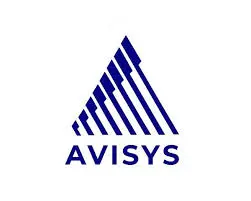











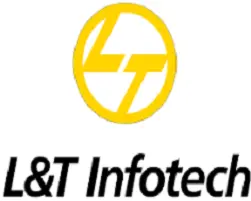
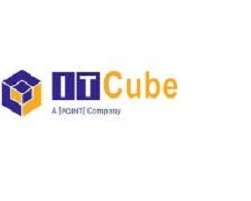












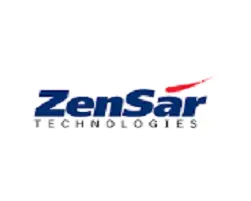
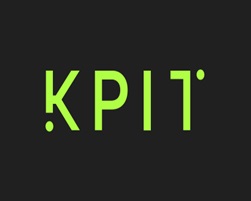

The Hadoop Admin Course is designed to equip individuals with the necessary skills and knowledge to effectively manage and administer Hadoop clusters and big data infrastructure.
The course is ideal for IT professionals, system administrators, database administrators, and anyone looking to pursue a career in big data administration.
Basic knowledge of Linux, networking, and database concepts is recommended but not mandatory. Our course covers fundamental concepts to ensure all participants can grasp the material effectively.
Yes, we offer both in-class and online training options for the Hadoop Admin Course to cater to the diverse needs of our students.
The course covers a wide range of topics including Hadoop architecture, HDFS (Hadoop Distributed File System), MapReduce, YARN, Hadoop cluster setup and configuration, monitoring, security, and troubleshooting.
The duration of the course varies depending on the mode of training and the depth of coverage. Typically, our Hadoop Admin Course spans over several weeks with flexible scheduling options.
Yes, participants are required to pass a certification exam to obtain the Hadoop Administrator Certification, validating their proficiency in Hadoop administration.
Certification exams are conducted regularly throughout the year to accommodate the diverse schedules of our students.
Graduates of our Hadoop Admin Course can pursue various career paths including Hadoop Administrator, Big Data Engineer, Data Analyst, and more, with opportunities in diverse industries such as finance, healthcare, e-commerce, and technology.
Yes, we offer extensive job assistance to our graduates, including resume building, interview preparation, and connecting them with our network of hiring partners.
Absolutely! Our course features hands-on labs and real-world projects to provide participants with practical experience in setting up and managing Hadoop clusters.
Yes, participants have access to course materials, recordings, and resources even after completing the training, ensuring continuous learning and reference.
We strive for student satisfaction, but if you’re not fully satisfied with the course, please refer to our refund policy for details.
We offer flexible payment options and installment plans to accommodate the financial needs of our students. Contact our admissions team for more information.
Yes, we offer customized Hadoop Admin Corporate Training programs tailored to the specific requirements of organizations. Our corporate training solutions are designed to enhance the skills of entire teams.
Ambegaon Budruk | Aundh | Baner | Bavdhan Khurd | Bavdhan Budruk | Balewadi | Shivajinagar | Bibvewadi | Bhugaon | Bhukum | Dhankawadi | Dhanori | Dhayari | Erandwane | Fursungi | Ghorpadi | Hadapsar | Hingne Khurd | Karve Nagar | Kalas | Katraj | Khadki | Kharadi | Kondhwa | Koregaon Park | Kothrud | Lohagaon | Manjri | Markal | Mohammed Wadi | Mundhwa | Nanded | Parvati (Parvati Hill) | Panmala | Pashan | Pirangut | Shivane | Sus | Undri | Vishrantwadi | Vitthalwadi | Vadgaon Khurd | Vadgaon Budruk | Vadgaon Sheri | Wagholi | Wanwadi | Warje | Yerwada | Akurdi | Bhosari | Chakan | Charholi Budruk | Chikhli | Chimbali | Chinchwad | Dapodi | Dehu Road | Dighi | Dudulgaon | Hinjawadi | Kalewadi | Kasarwadi | Maan | Moshi | Phugewadi | Pimple Gurav | Pimple Nilakh | Pimple Saudagar | Pimpri | Ravet | Rahatani | Sangvi | Talawade | Tathawade | Thergaon | Wakad
I had an amazing experience with this service. The team was incredibly supportive and attentive to my needs. The quality of the work exceeded my expectations. I would highly recommend this to anyone looking for reliable and professional service."
I had an amazing experience with this service. The team was incredibly supportive and attentive to my needs. The quality of the work exceeded my expectations. I would highly recommend this to anyone looking for reliable and professional service."
I had an amazing experience with this service. The team was incredibly supportive and attentive to my needs. The quality of the work exceeded my expectations. I would highly recommend this to anyone looking for reliable and professional service."
I had an amazing experience with this service. The team was incredibly supportive and attentive to my needs. The quality of the work exceeded my expectations. I would highly recommend this to anyone looking for reliable and professional service."
I had an amazing experience with this service. The team was incredibly supportive and attentive to my needs. The quality of the work exceeded my expectations. I would highly recommend this to anyone looking for reliable and professional service."
The Hadoop Admin Certification is a comprehensive program designed for IT professionals who aspire to manage and maintain large-scale data processing systems using the Hadoop framework. As organizations across the globe increasingly rely on big data to drive business insights and innovation, certified Hadoop Administrators are in high demand to ensure that these systems run smoothly, securely, and efficiently.
With the explosion of big data, Hadoop has become the go-to platform for storing and processing massive datasets. However, managing Hadoop clusters requires specialized skills to ensure data availability, performance, and security. This certification equips you with the knowledge and hands-on experience required to become proficient in managing Hadoop environments, making you a valuable asset in the growing field of big data.
The Hadoop Admin Certification course offers hands-on lab sessions to help you gain practical experience in setting up, managing, and troubleshooting Hadoop clusters. You’ll work on real-world scenarios that mirror the challenges faced by Hadoop administrators, ensuring that you are well-prepared to handle a production environment.
This certification is ideal for:
While there are no mandatory prerequisites for this certification, it is recommended that candidates have a basic understanding of Linux administration, networking, and system operations. Familiarity with big data concepts is also helpful but not essential.
Hadoop Admins play a critical role in managing and maintaining the Hadoop ecosystem, ensuring that data processing systems run efficiently and reliably. Their responsibilities extend across a variety of industries and use cases, where big data processing is crucial to business operations. Here are some key applications of Hadoop Administration:
1. Data Infrastructure Management
Hadoop Administrators are responsible for setting up, configuring, and managing the infrastructure that supports large-scale data storage and processing. This involves the design and deployment of Hadoop clusters, ensuring that they are optimized for performance, scalability, and fault tolerance. Industries that rely heavily on data, such as finance, healthcare, and telecommunications, require Hadoop Admins to oversee the smooth operation of their data platforms.
Example : In large e-commerce companies, Hadoop Admins manage clusters that process customer behavior data, purchase history, and inventory levels to optimize recommendation engines and inventory management systems.
2. Data Security and Compliance
Data security is a major concern for organizations handling sensitive information, such as personal data, financial records, or healthcare information. Hadoop Admins implement security protocols to protect data stored and processed within the Hadoop framework. This includes configuring user authentication, access control, and encryption mechanisms to comply with industry standards like HIPAA, GDPR, and PCI-DSS.
Example : In the healthcare sector, Hadoop Admins manage the secure storage of patient data while ensuring compliance with regulations that govern data privacy and protection.
3. Cluster Monitoring and Performance Optimization
Monitoring and maintaining Hadoop clusters is a key responsibility of Hadoop Admins. They use tools like Apache Ambari, Cloudera Manager, and Nagios to track the health of clusters, identify bottlenecks, and ensure optimal performance. Admins are also tasked with tuning the system, adjusting parameters like memory allocation, disk usage, and network bandwidth to meet workload demands.
Example : In the financial industry, Hadoop Admins manage clusters that process transaction data in real-time, ensuring minimal latency for stock trading platforms and fraud detection systems.
4. Data Backup and Disaster Recovery
Hadoop Admins play a crucial role in implementing data backup and disaster recovery strategies. By configuring data replication and snapshots, they ensure that critical business data is protected from loss or corruption. Admins are also responsible for restoring data in case of hardware failure, software bugs, or other unforeseen events.
Example : A global retail company relies on Hadoop Admins to back up customer transaction data and recover it swiftly in the event of a system crash, ensuring uninterrupted business operations.
5. Capacity Planning and Resource Allocation
As organizations grow and accumulate more data, the need for scalable infrastructure becomes vital. Hadoop Admins are responsible for capacity planning, which involves forecasting future data growth and scaling Hadoop clusters accordingly. They also allocate resources to different Hadoop jobs, ensuring the most efficient use of computing power, storage, and network resources.
Example : In the media industry, Hadoop Admins help plan and scale clusters that manage video streaming data, ensuring that millions of users experience high-quality streaming without interruptions.
6. Log Management and Troubleshooting
Hadoop Admins are responsible for managing system logs, which record activities and errors occurring within the Hadoop environment. These logs provide vital information for troubleshooting issues, identifying hardware failures, or tracking down performance problems. Admins analyze logs to resolve errors, prevent downtime, and maintain high cluster availability.
Example : In telecommunications, Hadoop Admins monitor and troubleshoot logs to ensure that call records and usage data are processed without delays, which is crucial for customer billing.
7. Hadoop Ecosystem Integration
The Hadoop ecosystem includes several tools and technologies like Apache Hive, Apache HBase, Apache Spark, and Apache Pig. Hadoop Admins integrate these tools with the Hadoop Distributed File System (HDFS) to enable efficient data processing, querying, and analysis. They also ensure that these tools are properly configured and maintained within the Hadoop environment.
Example : A marketing firm might use Hadoop Admins to integrate Spark and Hive into their Hadoop clusters to analyze customer interaction data, delivering real-time insights for marketing campaigns.
8. Support for Big Data Analytics
Hadoop Admins provide the foundation for big data analytics by maintaining the infrastructure that stores and processes large datasets. This infrastructure supports data scientists, analysts, and engineers who use it to perform tasks like data mining, machine learning, and predictive analytics.
Example : In the automotive industry, Hadoop Admins manage clusters that store sensor data from connected cars, enabling analysts to predict maintenance needs and improve vehicle safety features.
9. Cloud Integration and Hybrid Environments
Many organizations are moving their Hadoop deployments to the cloud to take advantage of scalability and cost-effectiveness. Hadoop Admins facilitate this transition by managing cloud-based Hadoop environments on platforms such as Amazon Web Services (AWS), Microsoft Azure, and Google Cloud Platform (GCP). Admins also oversee hybrid environments that combine on-premise and cloud resources to optimize performance and reduce costs.
Example : A multinational corporation might rely on Hadoop Admins to manage hybrid Hadoop environments where certain data workloads are processed on-premise while others run in the cloud, improving data processing flexibility.
10. Automation and DevOps Integration
Automation is becoming increasingly important in managing large Hadoop environments. Hadoop Admins use tools like Apache Oozie for workflow scheduling and automation of repetitive tasks. Additionally, they integrate DevOps practices, enabling continuous delivery and deployment of updates to Hadoop clusters without disrupting ongoing data processing operations.
Example : A financial institution may use automation and DevOps practices managed by Hadoop Admins to ensure their fraud detection system is updated in real time without downtime, enhancing security.
Welcome to Radical Technologies, the premier institute for Hadoop Admin training, certification, and job assistance in Pune. With a reputation for excellence, we are committed to empowering professionals with the knowledge and skills needed to thrive in the dynamic world of big data administration.
Our Hadoop Admin Course is meticulously designed to equip individuals with comprehensive expertise in Hadoop administration, catering to the growing demand for skilled professionals in managing big data infrastructure. Whether you are a novice looking to embark on a career in big data administration or a seasoned professional seeking to enhance your skill set, our course offers a structured learning path tailored to meet your specific needs.
At Radical Technologies, we understand the importance of practical hands-on experience. That’s why our Hadoop Admin Training goes beyond theoretical concepts, providing real-world scenarios and hands-on labs to ensure a deeper understanding of Hadoop ecosystem components, cluster management, configuration, monitoring, and troubleshooting.
Upon successful completion of our Hadoop Admin Course, participants receive a prestigious Hadoop Administrator Certification, validating their expertise and enhancing their professional credibility in the industry. Our certification is recognized by leading organizations worldwide, opening doors to lucrative career opportunities in big data administration.
What sets us apart is our commitment to not just imparting knowledge but also providing extensive job assistance to our graduates. Our vast network of industry connections and dedicated placement cell ensures that our students have access to a plethora of job opportunities with top-tier companies.
Whether you prefer classroom learning or the flexibility of online training, we’ve got you covered. Our Hadoop Admin Course is available both in-class and online, allowing you to choose the mode of learning that best fits your schedule and learning style.
Curious about what our course covers? Our Hadoop Admin Course Content is meticulously crafted by industry experts, covering everything from Hadoop fundamentals to advanced topics like security, scalability, and high availability. With a focus on practical application, our course content is designed to align with the latest industry trends and best practices.
In addition to individual training, we also offer customized Hadoop Admin Corporate Training programs tailored to the unique needs of organizations. Our corporate training solutions empower teams with the knowledge and skills needed to harness the power of big data effectively.
Ready to take the next step in your career? Enroll in our Hadoop Admin Course today and embark on a journey towards becoming a certified Big Data Hadoop Administrator. Join the ranks of successful professionals who have chosen Radical Technologies as their trusted partner in career advancement and professional development.

(Our Team will call you to discuss the Fees)
